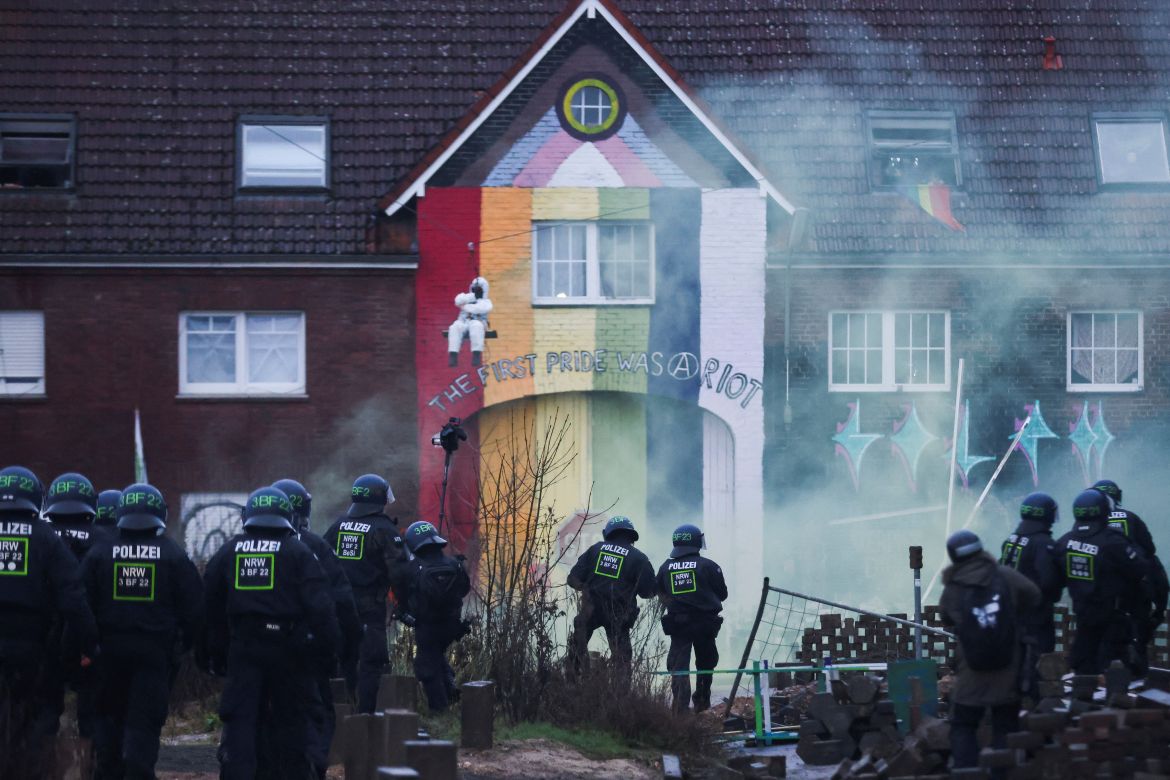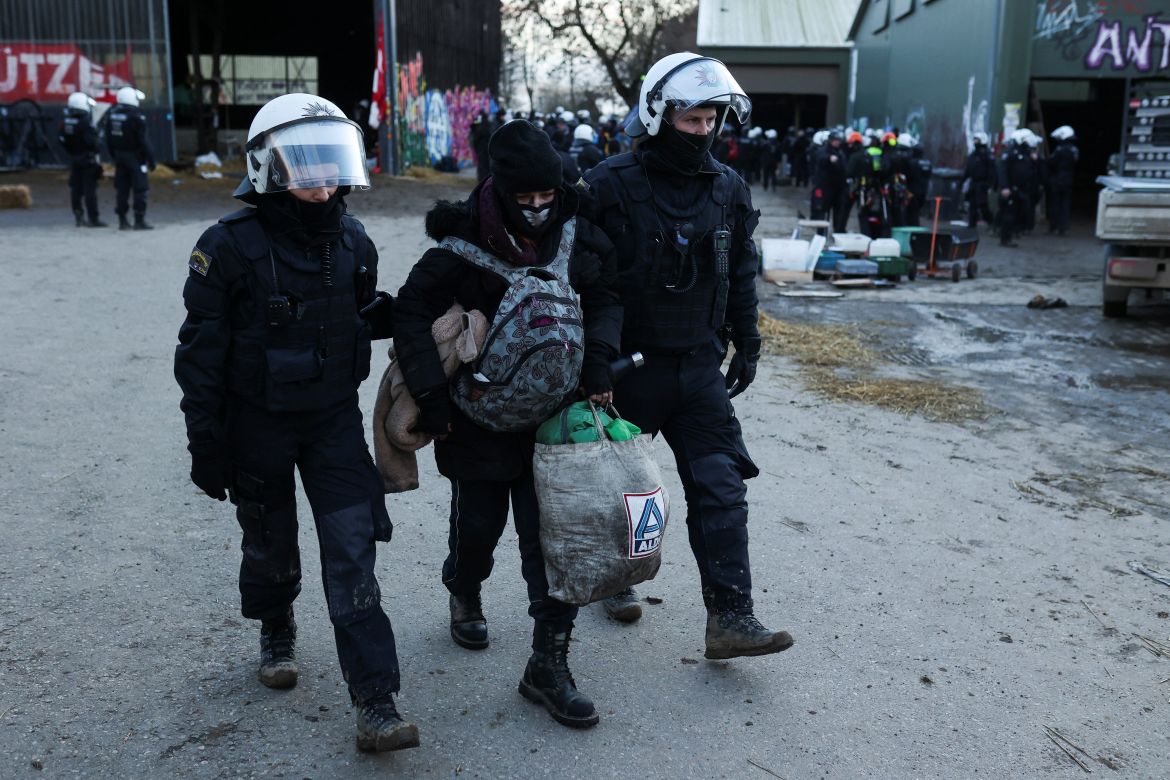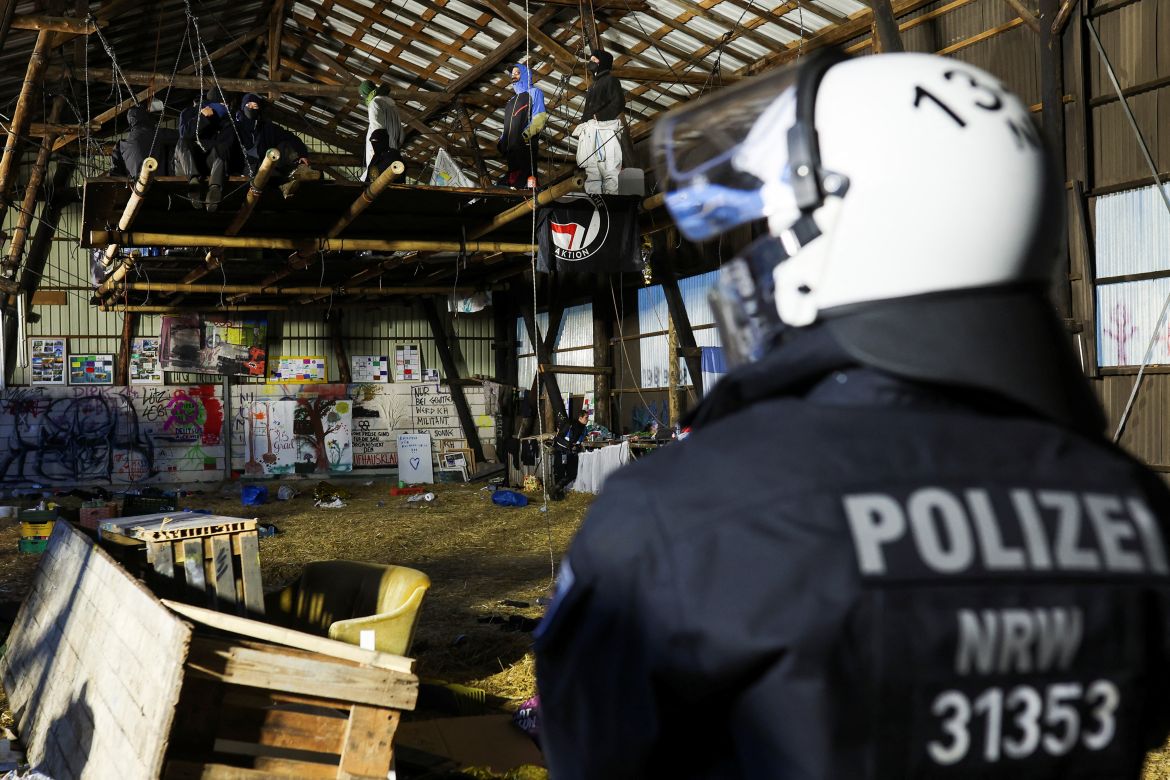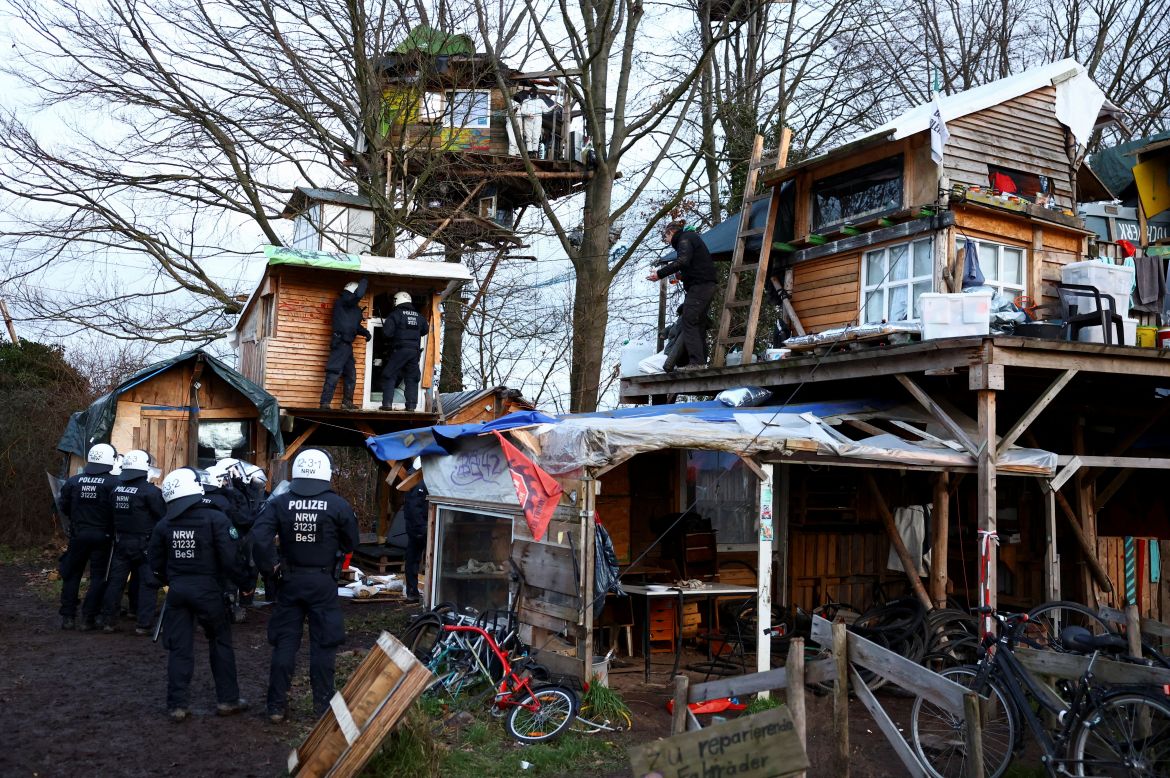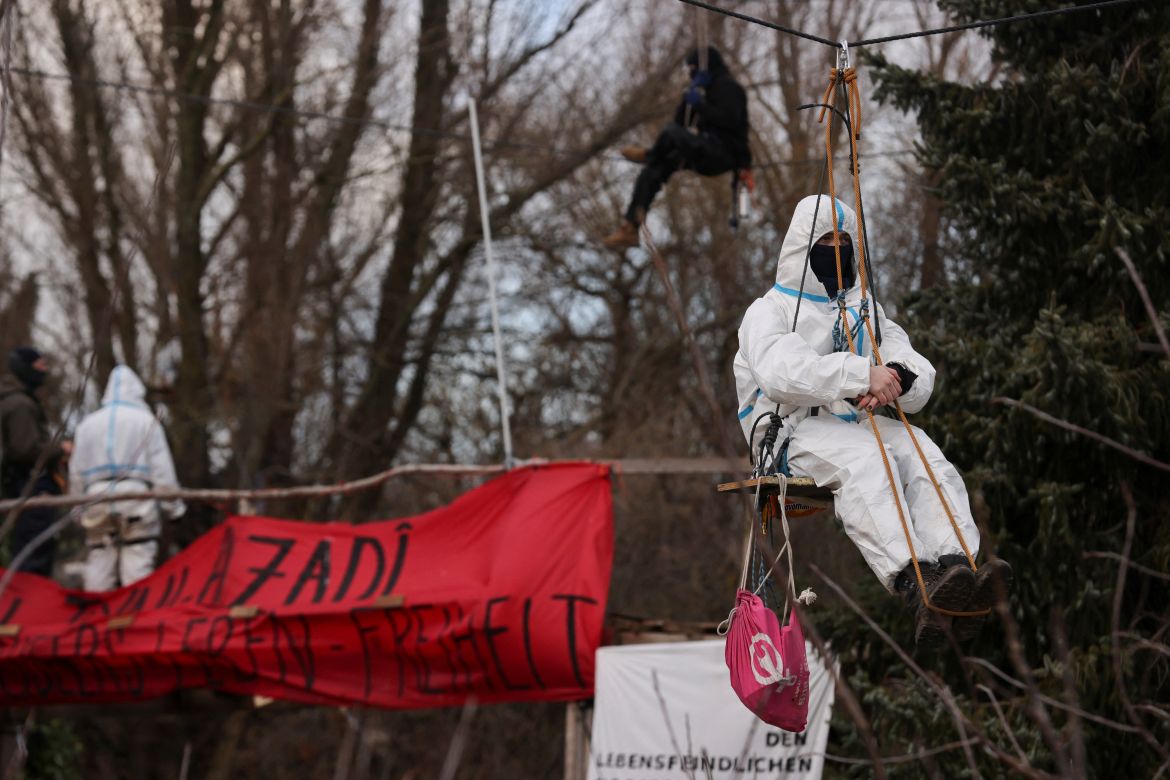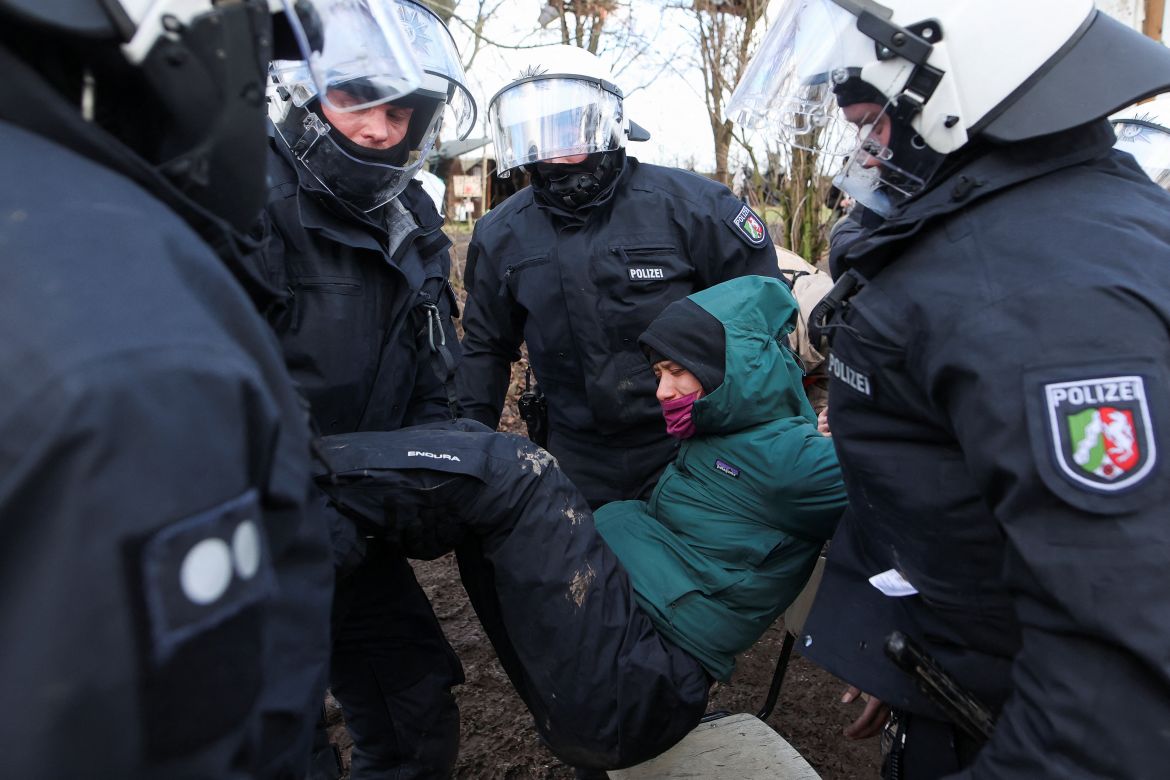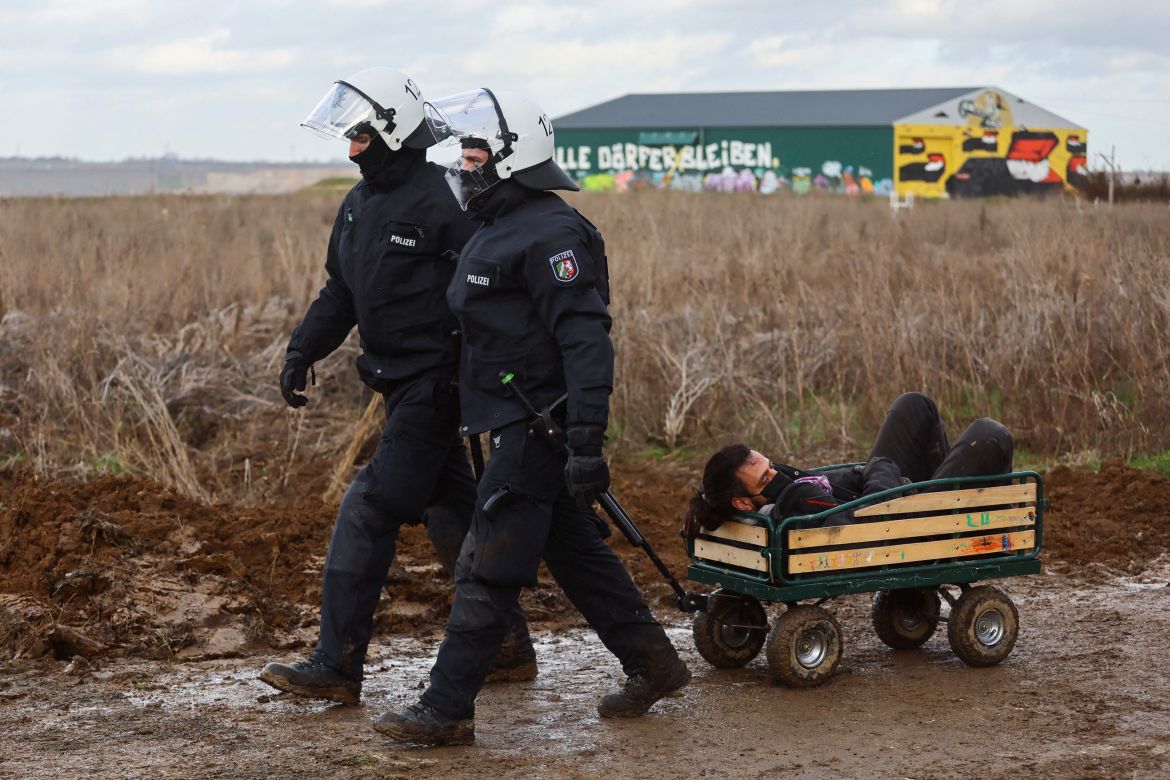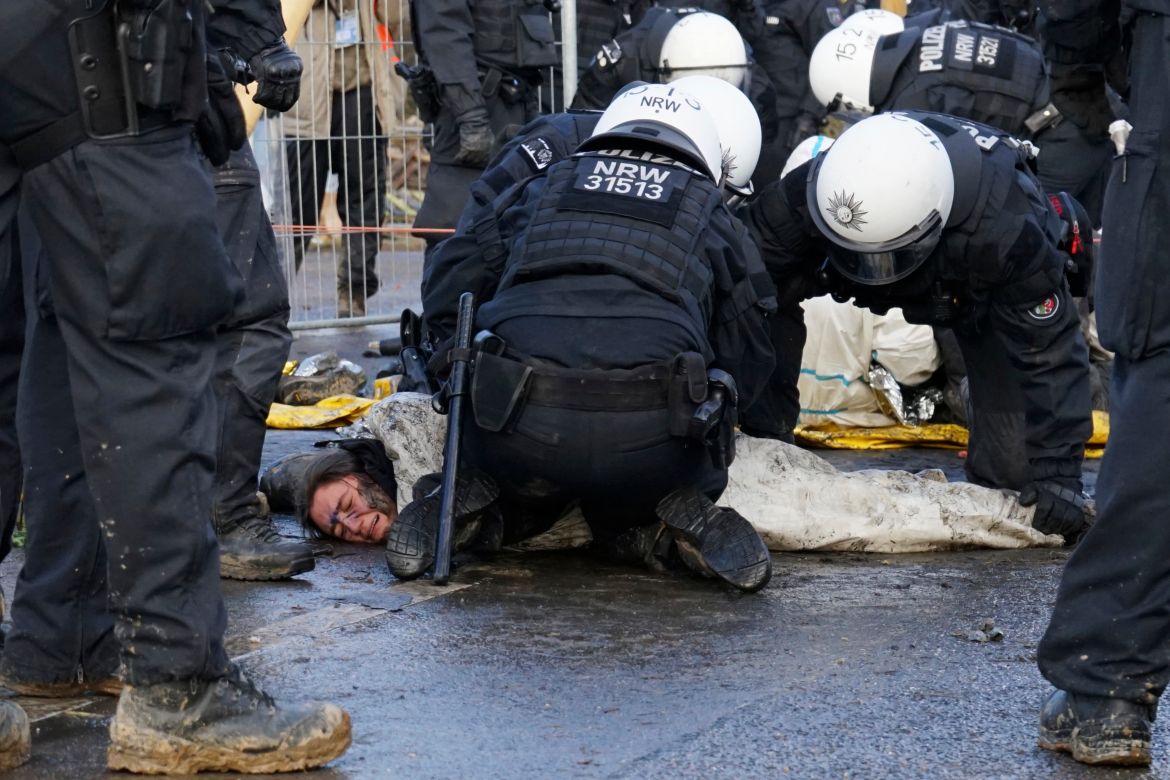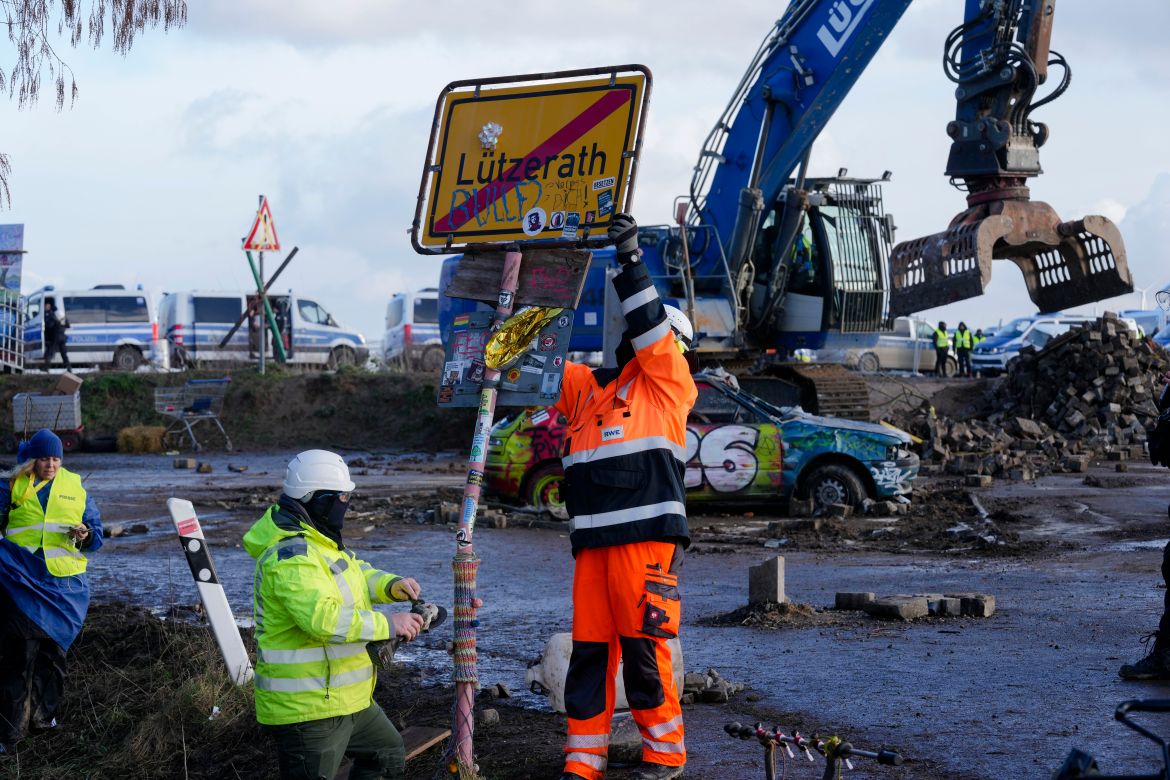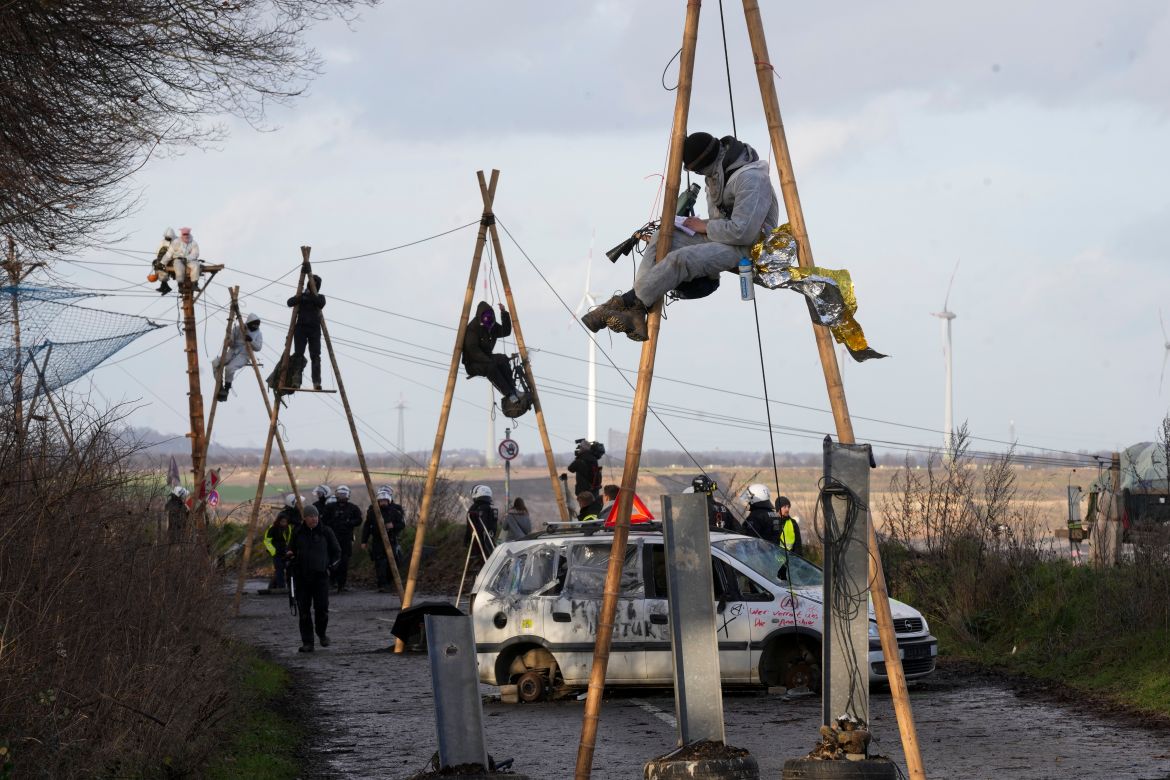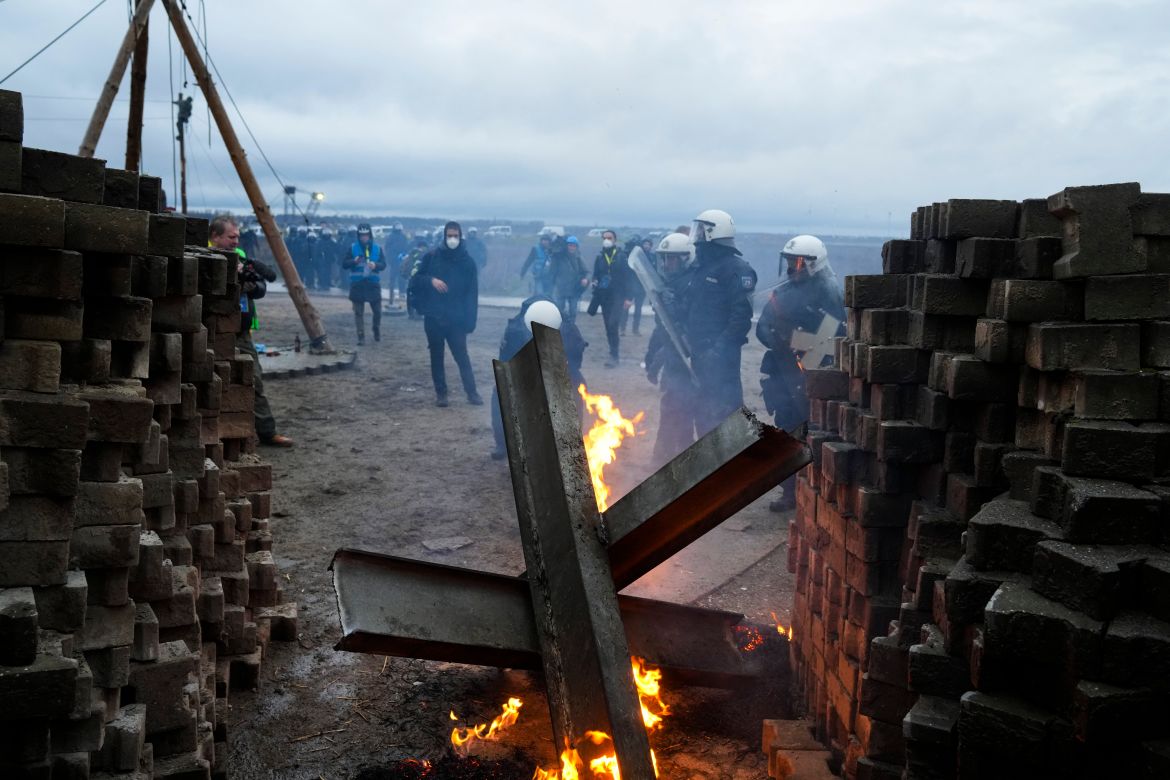In Pictures
German police begin clearing coal mine protest camp in Luetzerath
The expansion of a lignite mine has highlighted tensions around Germany’s climate policy during the energy crisis.
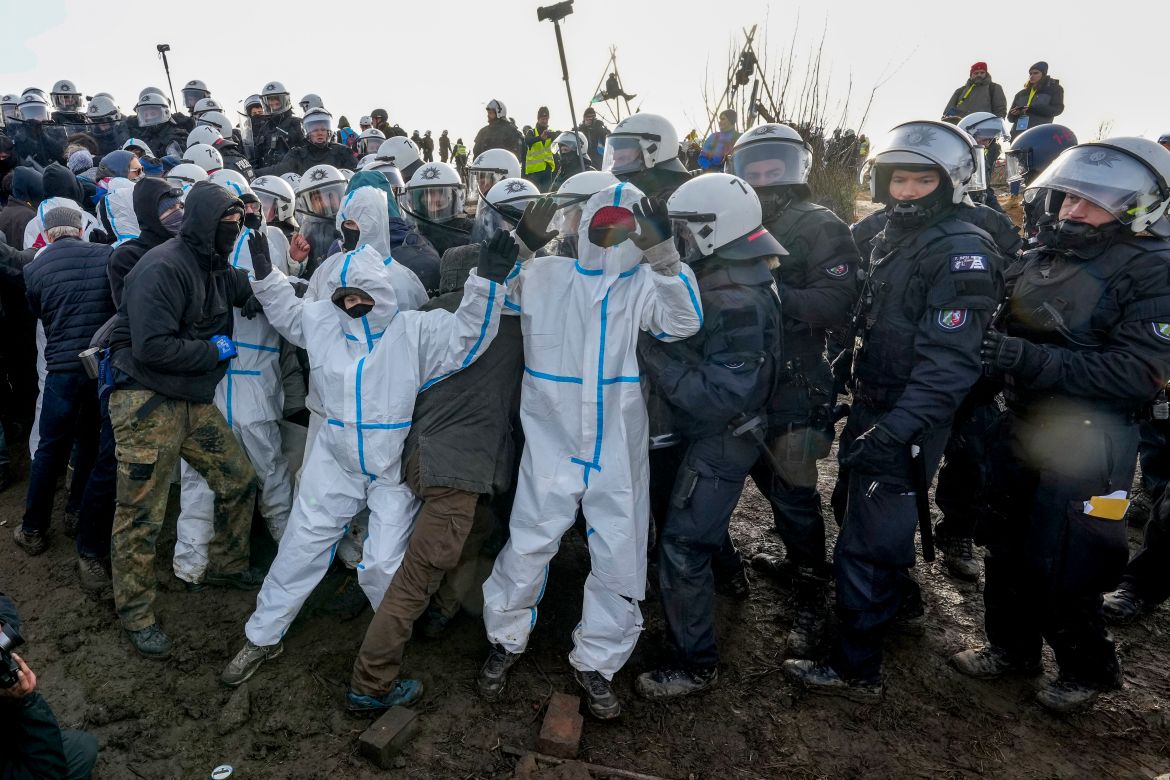
Police in riot gear have begun evicting climate activists from a condemned village in western Germany that is due to be demolished for the expansion of a coal mine.
Some stones and fireworks were thrown on Wednesday as officers entered the tiny hamlet of Luetzerath, which has become a flashpoint of debate over the country’s climate efforts.
Police spokesman Andreas Mueller said the attacks on officers were “not nice” but noted that most of the protests so far had been peaceful.
He said police would stick to their tactic of trying to avoid any escalation by offering to let any activists who leave on their own accord to do so without facing further police measures or prosecution.
“I’m really afraid today,” Petra Mueller, a 53-year-old local who had been at the site for several days, said from a top-floor window of one of the few remaining houses. Mueller said she still held out hope of preserving what is left of Luetzerath “until nothing is left standing; hope dies last”.
Environmentalists say bulldozing the village to expand the nearby Garzweiler coal mine would result in huge amounts of greenhouse gas emissions. The government and utility company RWE argue that coal is needed to ensure Germany’s energy security.
However, a study by the German Institute for Economic Research calls into question the government’s stance. Its authors found other existing coal fields could be used instead, though the cost to RWE would be greater.
Another alternative would be for Germany to increase the production of renewable power, cut demand through energy efficiency measures, or import more coal or gas from abroad, the study found.
Some activists expressed particular anger at the environmentalist Green party, which is part of the regional and national governments that reached a deal with RWE last year allowing it to destroy the village in return for ending coal use by 2030, rather than 2038.
“I think climate protection and protests need symbols but the empty hamlet of Luetzerath, where no one lives any more, is the wrong symbol from my point of view,” Vice Chancellor Robert Habeck, a Green who is Germany’s economy and climate minister, told reporters in Berlin.
Climate campaigners counter that expanding a massive open-cast coal mine goes against Germany’s international commitments to reduce emissions of planet-warming greenhouse gases. The country is expected to miss its ambitious targets for the second year in a row.
